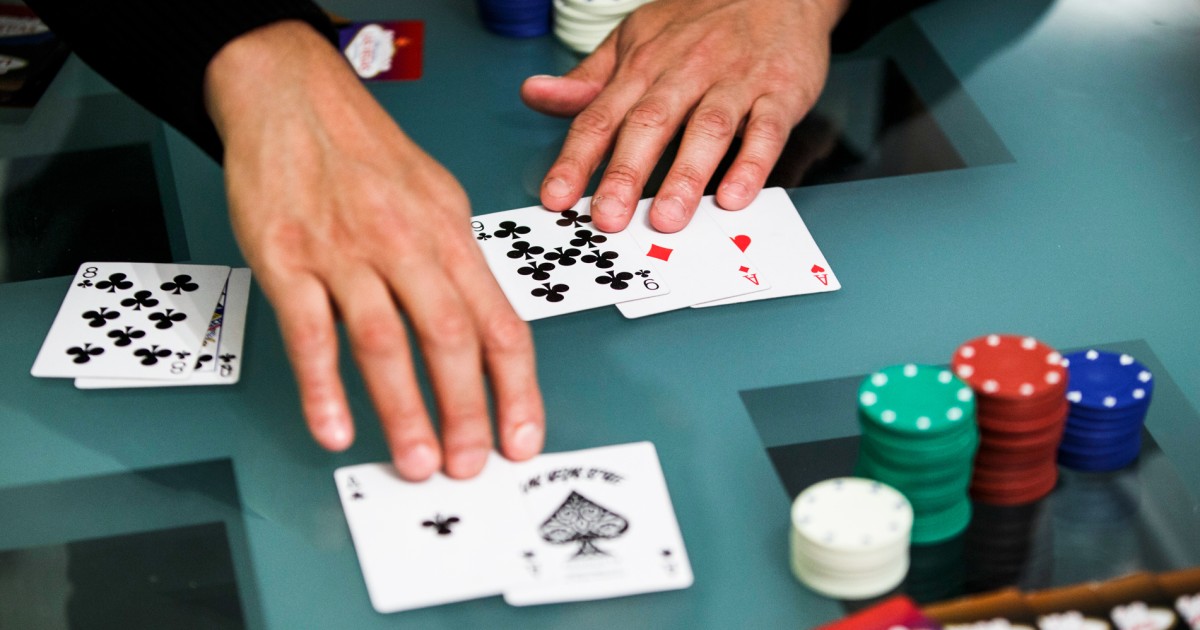Bettors are worried Trump’s ‘big, beautiful bill’ could cause professional gambling in the U.S. to fold

A relatively underappreciated constituency is raising the alarm about President Donald Trump’s “big, beautiful bill” — gamblers.
Tucked into the nearly 900-page legislation is a change to how gambling losses are taxed that some professional and amateur bettors say could crush the industry.
The provision, only a few paragraphs, would limit what gamblers can deduct from their yearly taxes to 90% of their losses starting in 2026. Currently, bettors can deduct the entirety of their losses, up until their winnings.
What a number of gambling aficionados pointed out on social media was that by limiting the tax deduction to 90% of losses, gamblers could actually owe taxes in years when they netted losses on their bets.
“This new amendment to the One Big Beautiful Bill Act would end professional gambling in the US and hurt casual gamblers, too,” Phil Galfond, a professional poker player, posted to X, including a video summarizing his argument. “You could pay more in tax than you won. Contact your representative quickly.”
Trump is set to sign the bill into law on Friday. The provision first generated buzz online after the Senate passed the legislation on Tuesday.
One example given on X laid out that under this new setup, if a gambler won $200,000 in a year but lost $210,000, they would actually be able to deduct only $189,000 worth of losses. Meaning they’d have $11,000 in taxable income even though they netted $10,000 in losses during the year.
“A pro who earns $200k/year might have $3m in winnings and $2.8m in losses,” Galfond said in a subsequent tweet. “This means earning $200k and being taxed as if they earned $480k. This applies to both recreational and professional gamblers.”
Gambling revenues have reached record highs in recent years as legalized gambling has proliferated across the U.S. Thirty-eight states, plus Washington, D.C., and Puerto Rico, now have some form of legalized sports betting, which has exploded following a 2018 Supreme Court ruling that broke up Nevada’s monopoly on the practice. In 2024, commercial gaming revenue reached a record high of nearly $72 billion, according to the American Gaming Association, which represents the U.S. gambling industry.
Rep. Dina Titus, a Democrat who represents Las Vegas, tweeted Wednesday that she was already seeking to amend the change.
“Buried within the BS Republican Budget bill is a provision that harms poker players and those who gamble by limiting loss deductions,” Titus wrote. “I’m working on a legislative fix that fairly treats gaming losses in the tax code.”
One gaming industry source who spoke with NBC News said the impact of the tax change is still to be determined, though this person said the change would mostly impact professional gamblers rather than recreational players.
In a May 6 letter to the chairs and ranking members of the Senate Finance Committee and House Ways and Means Committee, William C. Miller, president and CEO of the American Gaming Industry, included maintaining the current deduction for wagering losses as one of three industry-specific tax priorities for the reconciliation package Republicans have advanced.
Other priorities named in the letter, which was obtained by NBC News, included increasing the slot tax reporting threshold from $1,200 to $5,000 and repealing the sports betting excise tax on legal sports wagers. The AGA also named a number of broader tax priorities, including calling for no taxes on tips and maintaining the current corporate tax rate and SALT deductions.
In the letter, Miller described keeping the current gambling loss deduction as “critical,” adding that it should be expanded to allow for taxpayers who do not itemize their returns to report their net wins and losses as part of their adjusted gross income.
“Maintaining this deduction at its existing levels was absolutely a priority for the legal, regulated gaming industry,” the gaming industry source said. “So it’s fair to say that with this specific provision, we’re disappointed, and we’ll be monitoring its impact and seeking to work with congressional leaders to fix this before the overall legislation takes effect at the end of this year.”
A spokesperson for Senate Finance Committee Republicans did not immediately respond to a request for comment, nor did the White House. FanDuel and DraftKings, two of the biggest players in the sports betting market, declined to comment.
“Tax code is already punitive to poker players (you get taxed on winning years but can’t write off losing years unless you file as a pro; it’s easy to have a down year even as a good player) and Senate-passed version of OBBBA would make it considerably worse,” Nate Silver, the prominent political data analyst, tweeted.
As gambling, particularly legalized sports betting, has proliferated in recent years, though, researchers have found a negative impact on bettors’ finances, including reduced savings and lower investments in generally safer assets like stocks. Meanwhile, internet searches for gambling addiction and calls to state gambling helplines have increased, particularly among younger men.
